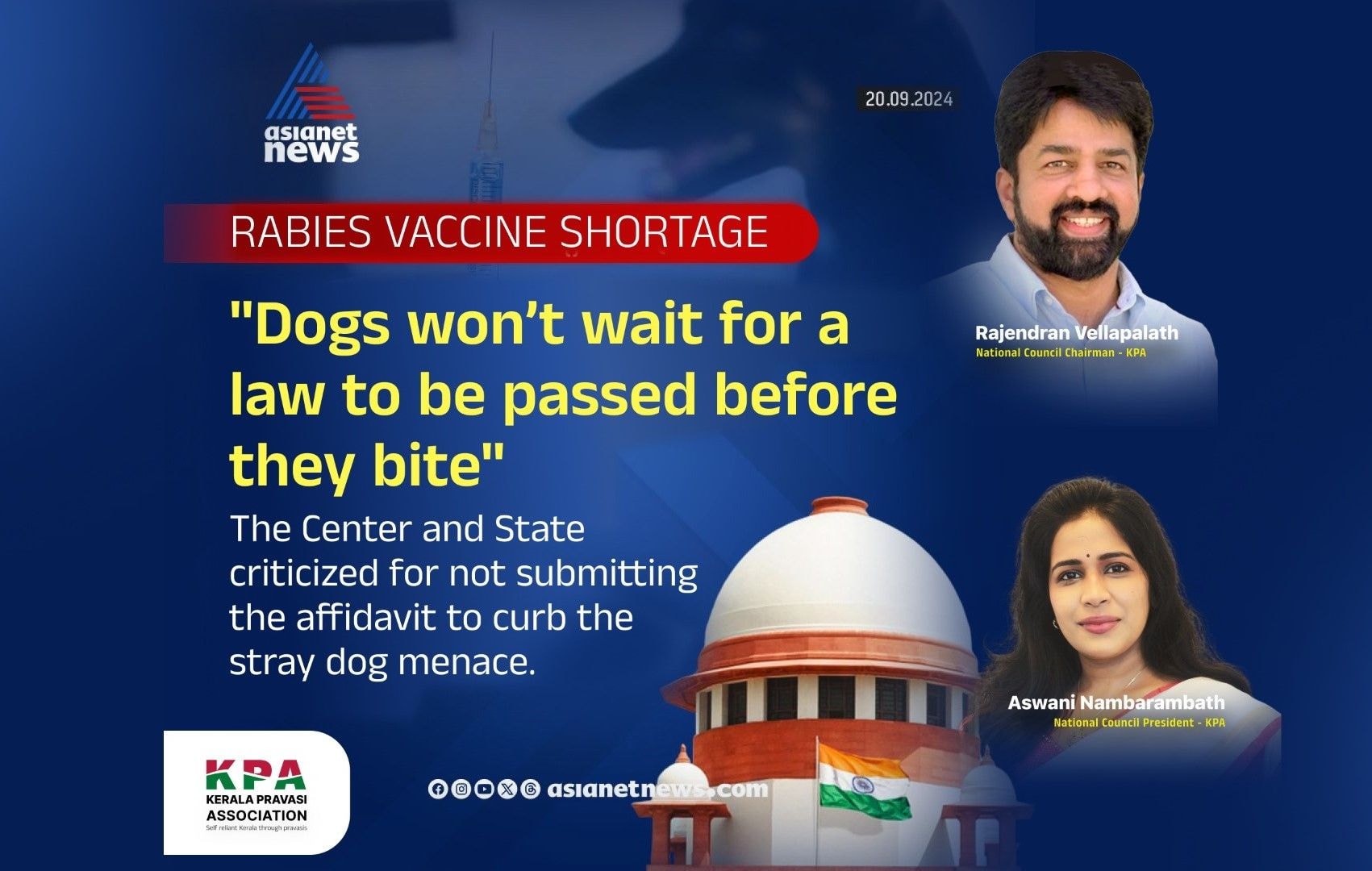Published : September 20, 2024

Efficacy of Rabies Vaccine: SC Expresses Strong Dissatisfaction with the Centre
The Kerala Pravasi Association (KPA) had filed a petition in the Supreme Court expressing concerns over the efficacy of rabies vaccinations and treatments. In response to this petition, the Central Government sought additional time to file its counter-affidavit. However, as discussions continued, the Court expressed concern over the prolonged delay, observing that precious lives were being lost during this time. Noting that the case has remained unresolved for two years, the Court instructed the Secretary of the Ministry of Health and Family Welfare and the Chief Secretary of Kerala to submit their counter-affidavits within six weeks, considering the seriousness of the issue. Failing this, the Court warned that they must appear in person on the next hearing date. The case, listed as item number 47 before the bench comprising Justices C.T. Ravikumar and Sanjay Karol (W.P. (C) No. 882/2022), saw the Centre once again requesting more time to file its response. Although the notice was initially served in 2022, the Centre had sought additional time as late as March 2024, stating that discussions were still ongoing to resolve the issue. The petition, filed by myself as Chairman of the Kerala Pravasi Association and KPA Party President Ashwini Nambarambath, demands that: - An independent expert committee be established to study the efficacy of intra-dermal rabies vaccines (IDRV) given to humans and rabies veterinary vaccines given to dogs in India. - The National Rabies Control Guidelines issued in 2019 be implemented in a unified and scientific manner. - Mechanisms be established to raise awareness of WHO-issued guidelines on rabies prevention. As per guidelines from the National Centre for Disease Control, manufacturing rabies vaccines for human use is a complex process that typically requires at least three to four months for production and quality testing. However, there have been shocking instances where vaccines were made available in Kerala within just 14 days of production. Administering such vaccines to the public without proper quality checks is a violation of Articles 14, 19, and 21 of the Constitution as well as the Drugs and Cosmetics Act of 1940, the petition states.